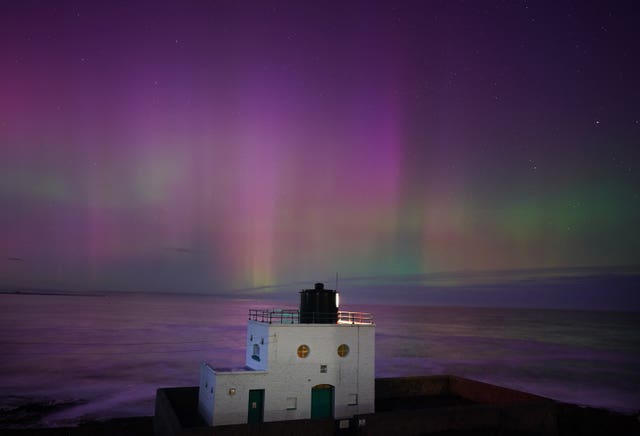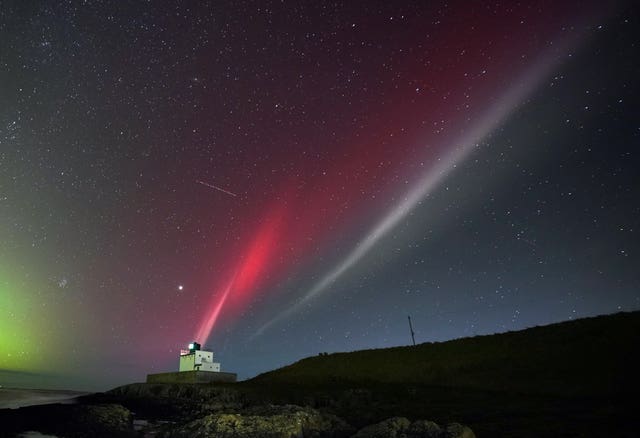
The northern lights have illuminated the skies on Sunday night with the Met Office confirming sightings spread across the UK.
The Met Office said the lights were “observed across Scotland, clearly visible from Shetland webcams, and sightings reported across some central and eastern parts of England”.
 (Owen Humphreys/PA)
(Owen Humphreys/PA)
On Sunday the Met said the best chances to see the northern lights, also known as aurora borealis, were in Scotland, but “it could be possible as far south as central Wales and England”.
READ MORE: Stunning photo of Aurora Borealis over Girvan
Professor Don Pollacco, department of physics at the University of Warwick, said the phenomenon was caused by “the interaction of particles coming from the sun, the solar wind, with the Earth’s atmosphere – channelled to the polar regions by the Earth’s magnetic field.
“It’s actually a bit like iron filings and the field of a bar magnetic.
 A strong thermal emission velocity enhancement, a rare aurora-like phenomenon named a STEVE in 2016 by scientists in Canada, can be seen over Bamburgh castle, in Northumberland (Owen Humphreys/PA)
A strong thermal emission velocity enhancement, a rare aurora-like phenomenon named a STEVE in 2016 by scientists in Canada, can be seen over Bamburgh castle, in Northumberland (Owen Humphreys/PA)
“The solar wind contains more particles when there are sun spots, as these are regions on the sun’s surface where the magnetic field is interacting with the plasma in the sun, and the particles can be released.
READ MORE: Northern Lights could be visible to naked eye across Scotland
“Once the particles are channelled into the Earth’s atmosphere they interact with molecules and have distinctive colours (eg oxygen molecules produce green light, nitrogen red light etc) and patterns such as light emissions that look like curtains or spotlights.
“These shapes change quickly over timescales of minutes/seconds.”



Why are you making commenting on The Herald only available to subscribers?
It should have been a safe space for informed debate, somewhere for readers to discuss issues around the biggest stories of the day, but all too often the below the line comments on most websites have become bogged down by off-topic discussions and abuse.
heraldscotland.com is tackling this problem by allowing only subscribers to comment.
We are doing this to improve the experience for our loyal readers and we believe it will reduce the ability of trolls and troublemakers, who occasionally find their way onto our site, to abuse our journalists and readers. We also hope it will help the comments section fulfil its promise as a part of Scotland's conversation with itself.
We are lucky at The Herald. We are read by an informed, educated readership who can add their knowledge and insights to our stories.
That is invaluable.
We are making the subscriber-only change to support our valued readers, who tell us they don't want the site cluttered up with irrelevant comments, untruths and abuse.
In the past, the journalist’s job was to collect and distribute information to the audience. Technology means that readers can shape a discussion. We look forward to hearing from you on heraldscotland.com
Comments & Moderation
Readers’ comments: You are personally liable for the content of any comments you upload to this website, so please act responsibly. We do not pre-moderate or monitor readers’ comments appearing on our websites, but we do post-moderate in response to complaints we receive or otherwise when a potential problem comes to our attention. You can make a complaint by using the ‘report this post’ link . We may then apply our discretion under the user terms to amend or delete comments.
Post moderation is undertaken full-time 9am-6pm on weekdays, and on a part-time basis outwith those hours.
Read the rules here